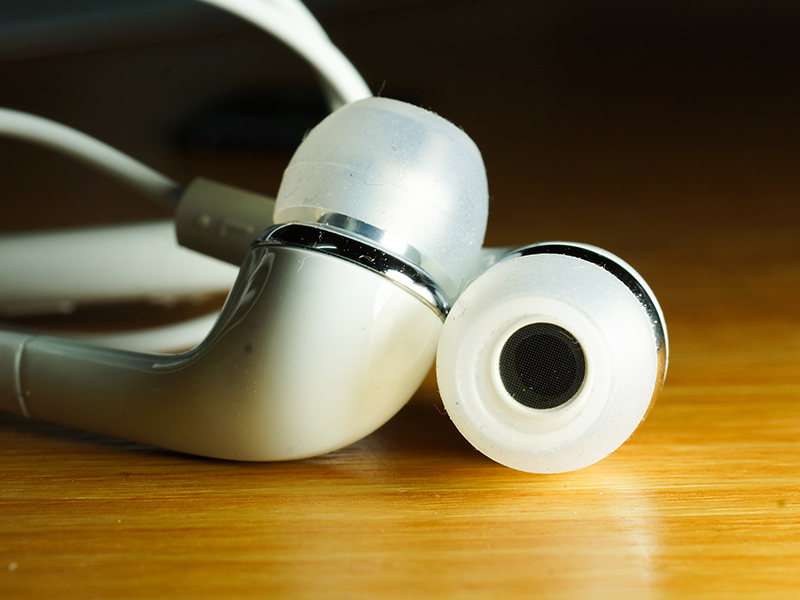Technology has come a long way in recent years. Computers once filled entire rooms, but we now have an exponential amount of computing power available to us on devices that fit in our pockets. It seems like we keep finding new ways to improve the devices that make our lives easier.
Hearing aid technology is no exception. The non-prescription earbud was recently developed as an alternative to the hearing aid.
Let’s examine the differences between earbuds and hearing aids and how they compare.
What are non-prescription earbuds?
Over-the-counter earbuds, also known as non-prescription earbuds, are just what they sound like: average-looking earbuds for people with mild hearing impairment. The idea is to avoid the stigma that comes with hearing loss.
What are prescription hearing aids?
Hearing aids are tiny computerized mechanisms worn behind the ear to enhance the quality and volume of the sounds a person hears. They’re composed of a microphone, amplifier and speaker. The sound enters the microphone, is amplified to the level the wearer requires, and then the speaker transmits the message to the wearer.
Hearing aids are prescription-only and they are fitted by a specialist to ensure you’re getting exactly what you need for your individual level of hearing loss.
How do they compare?
Both non-prescription earbuds and prescription hearing aids have advantages and disadvantages.
Non-prescription earbuds
The advantages of choosing earbuds over hearing aids include:
- Easily accessible as an over-the-counter product.
- Cheaper than professional, prescription hearing aids.
- Appears as if the wearer is simply enjoying music versus being hearing impaired.
- Don’t have to pay for an exam by a specialist.
The disadvantages of choosing earbuds over hearing aids include:
- Not adequately researched and aren’t FDA approved.
- There is not enough research to determine long-term side effects and other consequences.
- Because they aren’t fitted by a specialist, there is no guarantee as to their effectiveness.
- You’re not monitored by a hearing specialist to catch potential negative side effects.
Prescription hearing aids
The advantages of selecting hearing aids over earbuds include:
- Hearing aids are extensively studied for quality and FDA approved.
- A specialist will adjust hearing aids for your individual level of hearing loss, so there are no worries. You’re going to get exactly what you need.
- Hearing aids are monitored by qualified specialists to ensure your devices can adapt to any hearing loss changes.
- The first hearing aid was invented in 1898, which provides more than a century of data on long-term effects.
The disadvantages of selecting hearing aids over earbuds include:
- They can be expensive.
- Some models are visible in your ears.
- They require a visit to a hearing specialist.
The bottom line …
While earbuds are cheaper than hearing aids and address the stigma associated with hearing loss, there’s simply not enough research available to fully understand the long-term implications of wearing them.
The peace of mind that comes from knowing your hearing devices are specifically-designed for you is unparalleled. At some point, the prescription hearing aid industry and the over-the-counter earbuds market may merge, but currently, there are not enough studies regarding the safety of the wearer to recommend choosing earbuds over prescription hearing aids.
You wouldn’t consider purchasing non-prescription, over-the-counter eyeglasses if you were near-sighted, so why take the chance with your hearing health?
